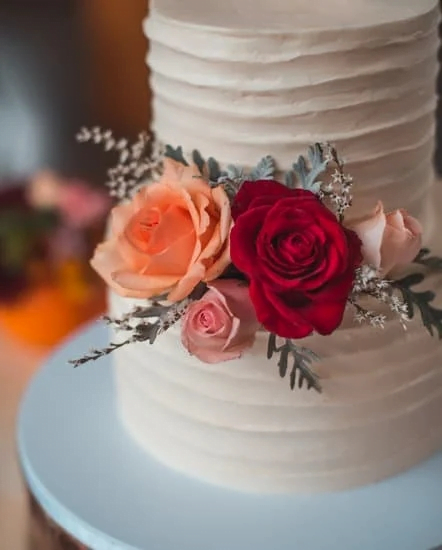Have you ever wondered why throw rice at weddings? The tradition of throwing rice at weddings has been practiced for centuries, and it carries a rich historical and cultural significance. In this article, we will explore the origins, symbolism, alternatives, risks, controversies, modern-day adaptations, environmental impact, and cultural variations of this age-old tradition.
The act of throwing rice at weddings dates back to ancient times and is deeply rooted in various cultures around the world. As we delve into the historical perspective of this tradition, we will uncover the origins and evolution of throwing rice as a symbol of fertility, prosperity, and good luck for the newlyweds.
Furthermore, we will examine the symbolism behind throwing rice at weddings and what it signifies for different cultures. From its representation of abundance and blessings to its role in warding off negative energy, throwing rice holds diverse meanings that contribute to the overall significance of this time-honored custom. Join us as we unravel the cultural traditions and beliefs associated with this cherished wedding tradition.
The Origins of Throwing Rice
The tradition of throwing rice at weddings is a practice that has been around for centuries, with its origins deeply rooted in ancient cultures and customs. It is believed that this tradition began in ancient Rome, where newlyweds were showered with wheat, rather than rice, as a symbol of fertility and prosperity. Over time, this custom evolved and spread to other parts of the world, taking on different variations and meanings in each culture.
In many Asian cultures, such as Chinese and Japanese, rice is considered a sacred symbol of life and fertility. The act of throwing rice at weddings is meant to bless the newlyweds with good fortune and abundance in their marriage. This tradition also symbolizes the sharing of one’s harvest or wealth with others, highlighting the importance of community and generosity in marriage.
As the practice made its way to Western societies, particularly Europe and North America, rice became the grain of choice for wedding celebrations. The significance of throwing rice at weddings transitioned into a gesture of well-wishing for the couple’s future together. It was also believed that the sound of rice hitting the ground would scare away evil spirits that may bring harm to the newlyweds.
In modern times, while the tradition of throwing rice at weddings continues to be cherished by many couples, there have been concerns about its environmental impact and potential risks. As a result, alternative materials such as birdseed, flower petals, or biodegradable confetti have become popular choices for wedding exits. Despite these changes, the historical legacy and symbolism behind throwing rice at weddings remain deeply ingrained in our cultural consciousness.
| Historical Perspective | Meaning |
|---|---|
| The tradition began in ancient Rome with wheat | Rice symbolizes fertility and prosperity in many Asian cultures |
| Rice replaced wheat in western societies as a gesture of well-wishing | The sound of rice hitting the ground was believed to ward off evil spirits |
Symbolism Behind Throwing Rice at Weddings
The tradition of throwing rice at weddings has been a long-standing practice in many cultures around the world. While it may seem like a simple and lighthearted act, the act of throwing rice holds deep symbolism and significance in the context of a wedding celebration.
Good Luck and Prosperity
One of the primary reasons why throwing rice at weddings is such a widespread tradition is its association with good luck and prosperity. In many cultures, rice is considered to be a symbol of fertility, abundance, and nourishment. By showering the newlyweds with rice as they make their exit, guests are essentially bestowing blessings upon them for a happy and prosperous marriage.
Warding Off Evil Spirits
Another symbolic meaning behind the act of throwing rice at weddings is its role in warding off evil spirits. In some cultures, it is believed that evil spirits are attracted to joyous occasions like weddings. The tossing of rice is thought to distract these malevolent forces and ensure that the couple’s union remains protected from any negative influences.
Unity and Blessings
Additionally, the act of throwing rice at weddings can also symbolize unity and shared blessings among the wedding guests. As friends and family participate in this age-old custom, they are expressing their support for the couple’s journey together while invoking positive energy for their future together.
Ultimately, the tradition of throwing rice at weddings encompasses a rich tapestry of symbolism that transcends cultural boundaries and resonates with universal themes of love, luck, and harmony. Understanding these deeper meanings adds a layer of depth to this cherished ritual that has stood the test of time across generations.
Alternatives to Throwing Rice
When it comes to wedding exits, throwing rice has been a longstanding tradition. However, as times change and environmental concerns become more prevalent, many couples are now exploring alternatives to the traditional rice toss. There are various creative and meaningful ways to incorporate modern twists on this classic tradition.
One popular alternative to throwing rice is using biodegradable confetti or flower petals. Not only does this option add a colorful and festive element to the wedding exit, but it is also eco-friendly. Another option gaining popularity is the use of bubbles or even sparklers for a more dramatic and visually stunning exit. These alternatives not only create beautiful photo opportunities but also add an element of fun and excitement for guests.
Additionally, some couples choose to personalize their wedding exits by incorporating meaningful items or activities. For example, having guests wave custom-designed flags or holding up signs with heartfelt messages can make for a unique and memorable send-off. Others opt for a grand exit in a vintage car, on a boat, or even on horseback for a more extravagant departure from their ceremony.
Ultimately, the choices for alternative wedding exits are endless, allowing couples to express their individuality while still honoring the tradition of making a grand departure from their wedding celebration.
| Alternative | Advantages |
|---|---|
| Biodegradable confetti or flower petals | Eco-friendly, adds color and visual appeal |
| Bubbles or sparklers | Creates stunning photo opportunities and adds excitement |
| Personalized items or activities | Allows couples to express individuality and create memorable moments |
The Risks and Controversies of Throwing Rice
Throwing rice at weddings has been a long-standing tradition, but it has also been shrouded in myths and controversies. Let’s take a closer look at some of the risks and controversies associated with this tradition and debunk some common misconceptions.
Myth: Rice Is Harmful to Birds
One of the most common myths surrounding throwing rice at weddings is that it can cause harm to birds. The belief is that if birds consume uncooked rice, it will expand in their stomachs and ultimately lead to their death.
However, this myth has been debunked by ornithologists who have confirmed that uncooked rice does not pose any harm to birds. In fact, many bird experts agree that birds are able to digest rice just like any other seed or grain.
Controversy: Environmental Impact
Another controversy surrounding the tradition of throwing rice at weddings is its potential environmental impact. Some argue that throwing uncooked rice can be wasteful and harmful to the environment, as it may not be biodegradable and can contribute to pollution. However, there are now many biodegradable options available for couples who still wish to incorporate this tradition into their wedding exit.
Debunking Misconceptions About Safety
There have also been concerns about the safety of throwing rice at weddings, with some believing that it can create slippery surfaces posing a risk for guests. This concern led to many venues banning the use of rice.
However, studies have shown that uncooked rice does not pose any more risk than flower petals or confetti when it comes to creating slippery surfaces. In fact, many venues now allow the use of rice as long as it is cleaned up promptly after the wedding exit.
Modern-Day Adaptations
In the modern age, couples are getting more creative with how they incorporate the tradition of throwing rice at weddings. While rice has been a staple for wedding exits for centuries, many couples are looking for unique and alternative ways to celebrate their send-off. Here are some modern-day adaptations and creative ideas to incorporate rice at weddings:
- Rice Confetti: Instead of using traditional uncooked rice, some couples opt for colorful or scented rice confetti. This adds a fun and visually appealing element to the wedding exit while still incorporating the traditional aspect of throwing rice.
- Seed Packets: Another environmentally friendly and unique alternative to throwing rice is handing out seed packets to guests. The guests can then toss the seeds as the newlyweds make their exit, symbolizing growth and prosperity in their marriage.
- Bubble Send-Off: While not exactly rice, bubbles have become a popular alternative for wedding exits. Bubbles create a whimsical and magical atmosphere as the couple walks through a cascade of floating bubbles, providing an enchanting photo opportunity.
These modern-day adaptations showcase how couples are finding new and creative ways to honor the tradition of throwing rice at weddings, while also adding their own personal touch to their special day. Whether it’s using environmentally friendly options or incorporating unique elements, couples are reimagining the age-old tradition in meaningful ways that reflect their own personalities and values.
Environmental Impact
As more couples become aware of the environmental impact of their wedding celebrations, the tradition of throwing rice at weddings has come under scrutiny. While rice is biodegradable and has been a staple in wedding exits for centuries, there has been a growing concern about its potential harm to wildlife, particularly birds. This has led to a debate on finding biodegradable alternatives for wedding exits that are both environmentally friendly and safe for wildlife.
There are several biodegradable alternatives to throwing rice at weddings that have gained popularity in recent years. One popular option is flower petals, which not only create a beautiful visual effect but also provide an eco-friendly alternative to rice. Another alternative is using biodegradable confetti made from recycled paper or natural materials such as leaves or dried flowers. These alternatives offer couples the opportunity to have a memorable wedding exit while minimizing the environmental impact.
In response to the concerns about the environmental impact of traditional rice throwing, some couples have taken creative approaches to incorporate sustainability into their wedding exits. For example, some choose to plant tree saplings instead of throwing rice or other materials, symbolizing the growth and longevity of their relationship while also contributing positively to the environment.
Additionally, some couples opt for interactive elements like bubbles or sparklers, which create stunning visual effects without leaving behind any waste. These modern adaptations not only reduce environmental impact but also add a unique touch to the wedding celebration.
Overall, the debate on biodegradable alternatives for wedding exits reflects a growing awareness among couples about making sustainable choices for their special day. By considering environmentally friendly options such as flower petals, biodegradable confetti, or symbolic tree planting, couples can still experience meaningful and beautiful wedding exits while minimizing their ecological footprint.
Cultural Variations
In conclusion, the tradition of throwing rice at weddings has a long and rich history, with cultural variations that add depth to its meaning. From its origins in ancient civilizations to its modern-day adaptations, the act of showering newlyweds with rice holds different symbolism for different cultures around the world. Despite the controversies and environmental impact associated with this tradition, many couples continue to embrace this age-old custom as they exit their wedding ceremonies.
As explored in this article, the significance of throwing rice at weddings goes beyond just a shower of well-wishes and good luck. It represents prosperity, fertility, and abundance in many cultures, while also symbolizing a celebratory send-off for the newlyweds. The evolution of this tradition has given rise to alternative wedding exits, but the allure of throwing rice remains strong for those seeking to honor cultural heritage and customs.
will continue to prompt discussions on culture, symbolism, and environmental impact. Regardless of individual preferences or cultural variations, throwing rice at weddings is an enduring practice filled with meaning and significance.
Frequently Asked Questions
Where Did the Tradition of Throwing Rice at a Wedding Come From?
The tradition of throwing rice at weddings is believed to have originated in ancient Rome and Asia as a symbol of fertility, prosperity, and good fortune for the newlyweds. It was thought that showering the couple with rice would bless them with many children and abundance in their marriage.
Why Is Throwing Rice at Weddings Illegal?
Throwing rice at weddings became illegal in some places due to concerns about birds ingesting the uncooked rice and experiencing harm. There was a misconception that birds consuming the uncooked rice would cause their stomachs to expand and ultimately lead to their deaths. This led to bans on throwing rice at weddings in certain areas.
Why Do Brides Throw Rice Over Their Heads?
Brides traditionally throw rice over their heads after the wedding ceremony as a way to symbolize fertility, prosperity, and good luck for their marriage. The act of throwing the rice represents an offering of blessings for the couple’s future together, hoping for abundance and happiness in their life as husband and wife.

Welcome to my blog about home and family. This blog is a place where I will share my thoughts, ideas, and experiences related to these important topics. I am a stay-at-home mom with two young children. I hope you enjoy reading it! and may find some helpful tips and ideas that will make your home and family life even better!





